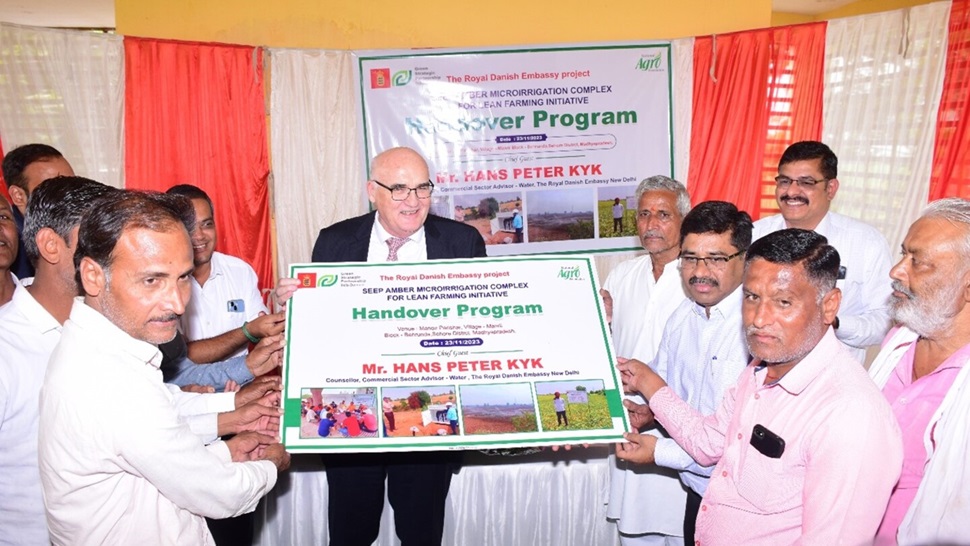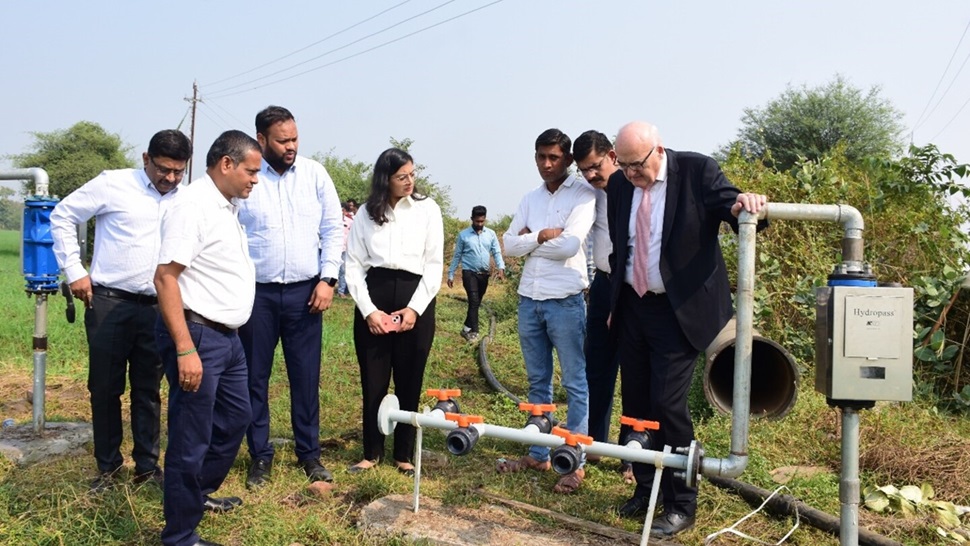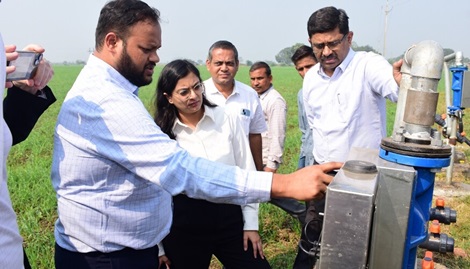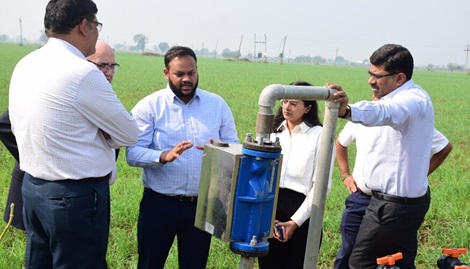
Irrigation efficiency is key in a recent initiative by the National Agro Foundation and executed by ACMO WATER TECHNOLOGY INDIA PVT LTD.
To the benefit of +1,000 farmers in the Bhopal area, irrigation efficiency is key in a recent initiative by the National Agro Foundation and executed by ACMO WATER TECHNOLOGY INDIA PVT LTD (AWT). The initiative is part of a significant turn in local agricultural farming in India.
In October 2022, the Madhya Pradesh Government’s Cabinet gave orders for the Sip Amber Irrigation complex project in Sehore in Bhopal, Madhya Pradesh, India. The project, with an estimated value of INR. 346 Crore (EUR 38.6 million), set out as a collaborative effort between the Madhya Pradesh government and international partners.
The project aims to irrigate 15,284 hectares of area lifting water from the Narmada River through a pump house. A pressurized pipe system and SCADA technology will incorporate advanced irrigation methods such as drip irrigation.
Driving the future of irrigation in India
The project aims to improve water efficiency by 30% and increase crop yields by 20% within three years. Also, local farmers should be properly trained to focus on sustainable farming practices and to make use of the modern irrigation equipment now available.
Expected to be fully operational by December 2024, the project will benefit over 1,000 farmers in 26 villages from the surrounding area of Bhopal.
Besides enabling agricultural productivity, the project is expected to reduce costs, promote sustainability, and boost the farmer’s capacity to thrive in agricultural activities in the region, safeguarding livelihoods for future generations to come. The project represents a significant leap forward in local agricultural technology, and aims to revolutionize irrigation practices in India, which will be beneficial for both people and planet.
AWT's vision behind the Sip Amber Project is to embark on a long journey to support the ever-growing changing landscape of irrigation. A move that can potentially be decades-long, but we are already working on the important foundation.
The project’s objective is to integrate key features of the Hydropass into the current systems, optimizing irrigation efficiency. One of the stand-out features is the built-in battery system, eliminating the need for solar panels. This innovation has been a gamechanger, adapted from an Italian model to fit the Indian context
Empowering farmers through technology
A critical aspect of the Sip Amber project is the empowerment of farmers through technology. The new irrigation system provides farmers with unprecedented control over their water usage. Unlike traditional methods, which allocate water based on rigid schedules, the new system allows farmers to access water as per their crop requirements. This flexibility is facilitated by a user-friendly app that notifies farmers of their water slots, ensuring efficient water distribution based on individual needs, since "everyone in India now has a smartphone," as explained by the project engineering team. Farmers can download the free application, receive notifications, and manage their water usage effectively. This system tailors water distribution based on land size and crop requirements, enhancing overall productivity.

Securing sustainability and efficiency
The Sip Amber project aligns with the Government of Madhya Pradesh India's "Every Drop More Crop" initiative, emphasizing water conservation and sustainable agricultural practices. By incorporating advanced features like standalone controllers and inbuilt batteries, the system minimizes dependency on external factors such as network connectivity and ensures uninterrupted water supply even during unforeseen circumstances.
Standalone controllers minimize dependency on SCADA, ensuring independent operation during network issues with its own logic for four months.
Market impact and future prospects
The project has already garnered significant attention and success. Thanks to this innovation, AWT has secured projects for 100,000 hectares; projects that will, although currently based on older systems, incorporate new features like inbuilt batteries, ensuring they are future-ready. AVK and AWT are not just focusing on immediate success, but on driving the conversation towards a smarter, more sustainable approach to irrigation, which is based on water conservation and efficiency.
The Sip Amber Project exemplifies how innovative technology can transform traditional practices, ensuring sustainable and efficient water use in agriculture. By integrating innovative features and empowering farmers with control over their water usage, we are paving the way for a brighter, more sustainable future in Indian agriculture.


